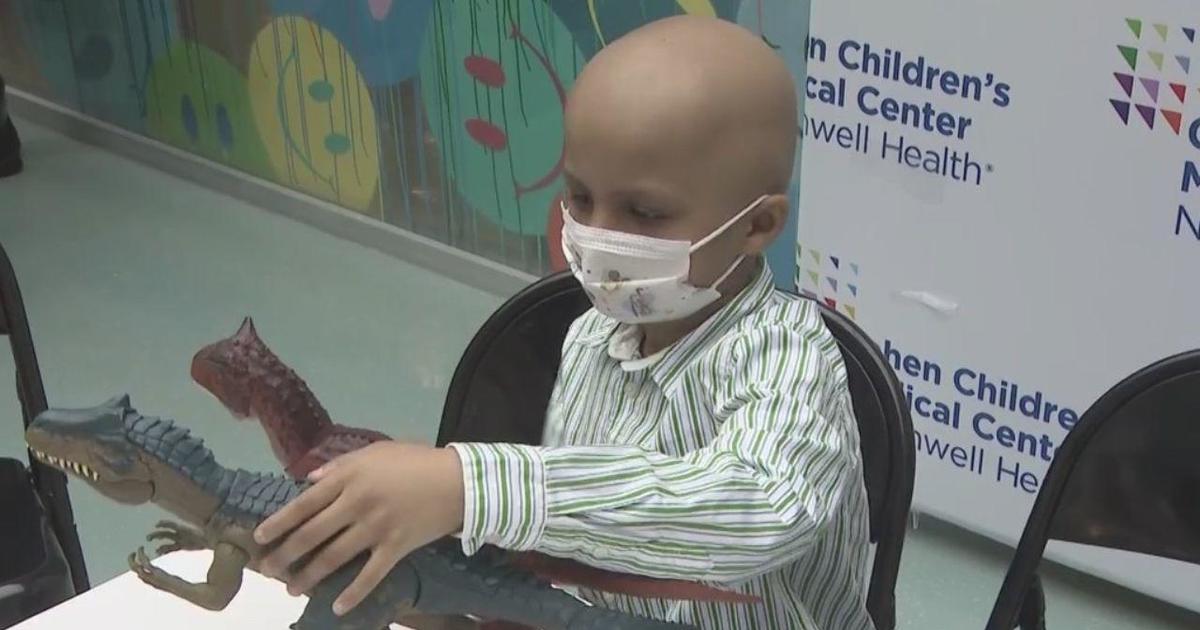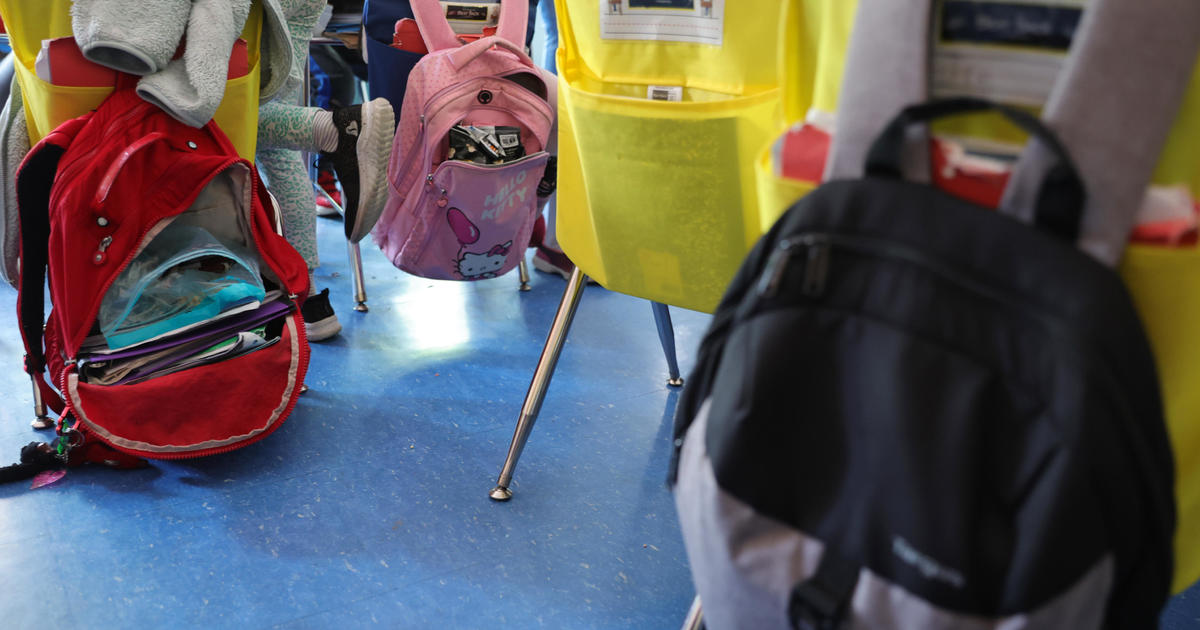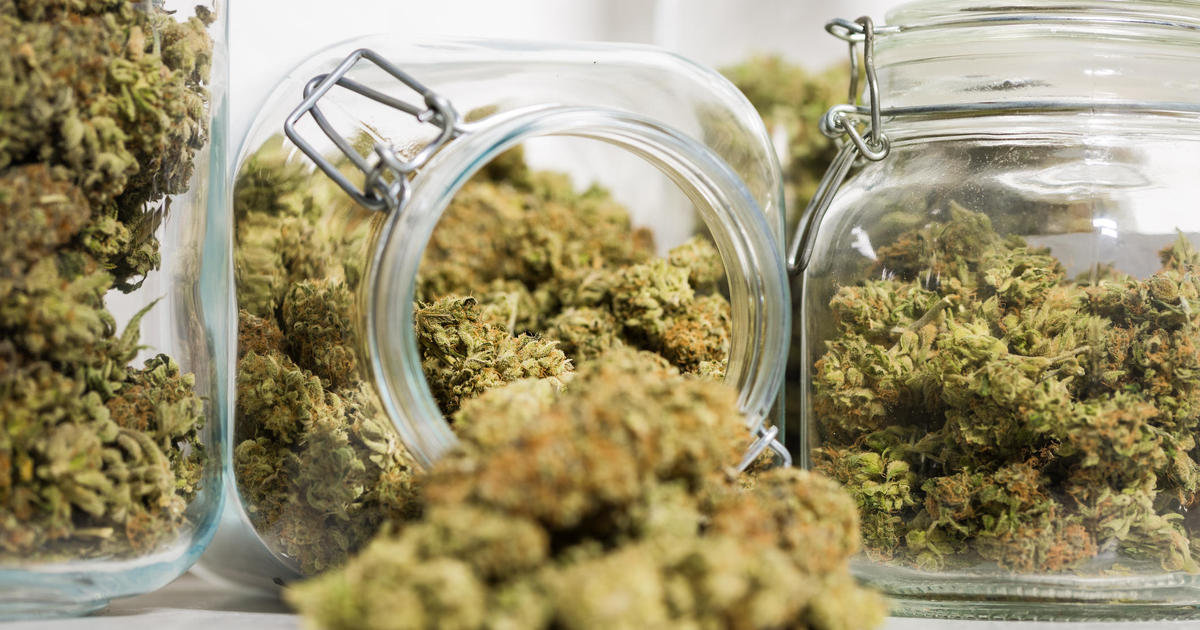Clinton, Sanders Get Heated During Democratic Debate
DURHAM, N.H. (CBSNewYork/AP) -- Sparks flew and tempers flared in the debate between Hillary Clinton and U.S. Sen. Bernie Sanders (D-Vermont) Thursday night.
Their race newly energized, the two candidates are sparred over who is the best standard-bearer for progressive values -- and who can actually deliver on a liberal agenda of providing universal health care access, reducing income inequality, protecting worker rights and more.
In her opening statement, the former secretary of state attacked Sanders, saying she is "not making promises that I cannot keep" and that his numbers "just don't add up."
She said she doesn't want to "plunge" the nation into another contentious debate over health care and thinks college should be affordable, not free.
Sanders countered that Clinton was willing to settle for less than Americans deserve.
"I do not accept the belief that the United States of America can't do that," Sanders said of his plan for universal health care and of his efforts to take on "the rip-offs of the pharmaceutical industry."
Sanders said there's no reason the United States can't make health care a right for people, not a privilege, and says Wall Street should pay to cut the costs of college.
Sanders said the "middle class bailed out Wall Street in their time of need, now it is time for Wall Street to help the middle class."
The Vermont senator called the "business model of Wall Street is fraud," and that corruption is "rampant."
Clinton went after Sanders over his comments about her Wall Street speaking fees, telling him its time to end this "very artful smear" against her and to talk about the issues.
"If you have something to say, say it," she told Sanders.
David Axelrod, Obama's former senior adviser, sent a tongue-in-cheek tweet following that exchange.
"Goldman Sachs guys must have gotten tired of hearing the bin Laden story by the third speech," Axelrod posted on Twitter.
Regarding the Affordable Care Act, Sanders said that the notion that he would "dismantle" President Barack Obama's health care law is inaccurate.
Sanders also called for a "political revolution," that Americans need to stand up and fight back.
When the debate steered to foreign policy, Sanders said North Korea poses the greatest threat to the U.S.
"Clearly North Korea is a very strange situation because it is such an isolated country," he said. "North Korea is ran by handful or dictators or maybe just one."
The race for the Democratic nomination, once seen as a sure thing for Clinton, intensified this week after Sanders held the former secretary of state to a whisper-thin margin of victory in Iowa's leadoff caucuses. The tone of their back-and-forth has become increasingly sharp, and the candidates agreed to add four more debates to the primary season schedule, including Thursday's faceoff in Durham.
The debate is the last before Tuesday's first-in-the-nation New Hampshire primary, and Sanders holds a big lead in polls in the state.
In fresh evidence of the tightening race, Clinton reported that her campaign had raised $15 million in January -- $5 million less than Sanders and the first time she's been outraised by her opponent. Her finance director called the numbers "a very loud wake-up call" in a fundraising email to supporters.
Heading into the debate, Sanders was eager to lower expectations for his finish in New Hampshire, casting himself as an underdog against "the most powerful political organization in the country."
Clinton, for her part, signaled her determination to at least narrow the gap before Tuesday's vote in the state where she defeated Barack Obama in 2008 before ultimately losing the nomination to him. Her prospects are much stronger in primaries and caucuses after New Hampshire, as the race moves on to states with more diverse electorates that are to her advantage.
The two campaigns have even skirmished this week over why Sanders is doing so well in New Hampshire polls. His campaign accused Clinton's of insulting New Hampshire voters by suggesting they only support the Vermont senator because he's from a neighboring state. That was after Clinton's campaign manager referred to New Hampshire as Sanders' "backyard."
Clinton's campaign also criticized Sanders' camp for what it said were misleading ads that suggest the senator received the endorsement of two newspapers that have not backed his bid for the White House. Sanders countered that the ads didn't say he'd been endorsed but merely passed along "nice" words the newspapers had written about him.
The Durham debate will be the first faceoff for Clinton and Sanders since former Maryland Gov. Martin O'Malley dropped out of the race after a poor showing in Iowa.
Clinton's razor-thin win in Iowa was the latest twist in an election campaign that, until recently, had been dominated by the crowded and cacophonous field of Republicans, who spread out across New Hampshire this week.
Donald Trump, who finished second in Iowa, stepped up the pace of his campaign and acknowledged he should have had a stronger ground operation in Iowa. Jeb Bush, his campaign lagging, brought in his mom, former first lady Barbara Bush, who praised him as "decent and honest and everything we need in a president."
(TM and © Copyright 2016 CBS Radio Inc. and its relevant subsidiaries. CBS RADIO and EYE Logo TM and Copyright 2016 CBS Broadcasting Inc. Used under license. All Rights Reserved. This material may not be published, broadcast, rewritten, or redistributed. The Associated Press contributed to this report.)



